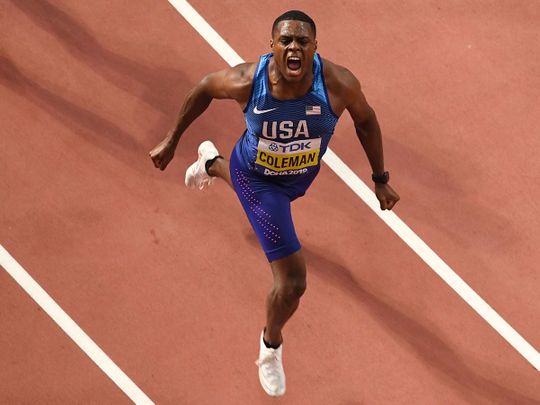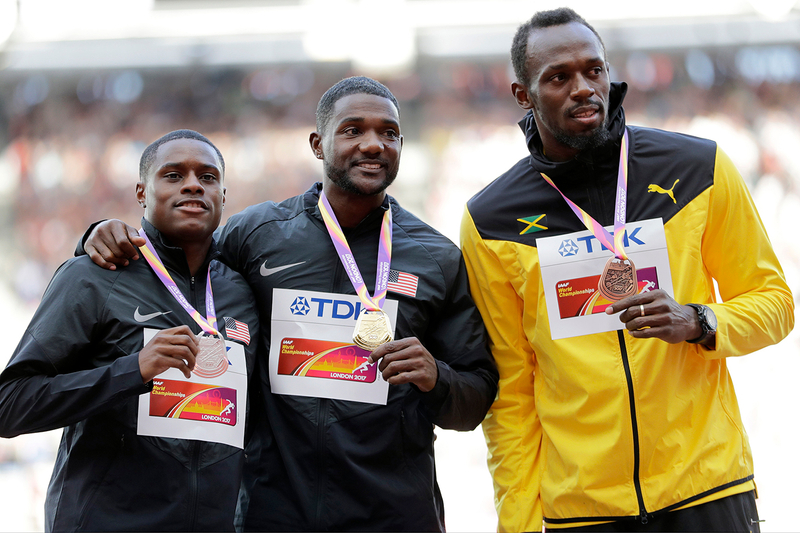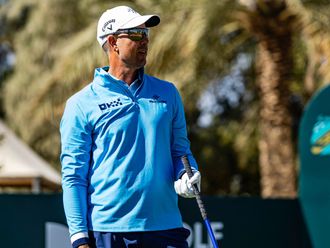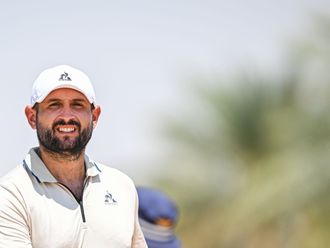
Los Angeles: Reigning world 100m champion Christian Coleman was provisionally suspended on Wednesday over a missed drugs test, putting him at risk of a two-year ban that would rule him out of next year’s Tokyo Olympics.
Coleman, who only narrowly avoided being banned last year after three violations of anti-doping “whereabouts” rules across 2018 and 2019, said in a statement on Twitter that he was the victim of “a purposeful attempt to get me to miss a test.”
The Athletics Integrity Unit (AIU), the anti-doping arm of World Athletics, responded by saying testers had followed the rules when they visited Coleman’s apartment on December 9, 2019.
Coleman said he was out shopping for Christmas presents.
“I was more than ready and available for testing and if I had received a phone call I could’ve taken the drug test and carried on with my night,” he said.
“I’ve been contacted by phone literally every other time I’ve been tested,” said Coleman.

The AIU responded in an email in which they said “we will not comment on the specifics of an ongoing case” but that “a phone call is discretionary and not a mandatory requirement.”
“Any advanced notice of testing, in the form of a phone call or otherwise, provides an opportunity for athletes to engage in tampering or evasion or other improper conduct which can limit the efficacy of testing,” the AIU added.
Coleman, 24, is now barred from competition pending a hearing under World Athletics anti-doping rules.
The American escaped suspension on a technicality ahead of last September’s World Championships in Qatar after it emerged he had committed three whereabouts failures in a 12-month period.

After a close call last year for 3 whereabout failures or missed tests, for Coleman to allow this to happen again will lead people to believe either you’re doping or you don’t take seriously the anti-doping efforts of the sport. What reason do we have to believe otherwise?
Those offences were recorded on June 6, 2018 and on January 16 and April 26 in 2019.
Coleman successfully argued that the first missed case should have been backdated to the first day of the quarter - April 1, 2018 - meaning the three failures fell just outside the required 12-month period.
Wednesday’s suspension for again missing a test was greeted with disbelief by the track and field community.
“After a close call last year for 3 whereabout failures or missed tests, for Coleman to allow this to happen again will lead people to believe either you’re doping or you don’t take seriously the anti-doping efforts of the sport. What reason do we have to believe otherwise?” tweeted Michael Johnson, Olympic gold medallist in the 200m and 400m and an eight-time world champion.
The news came 12 days after another 2019 world champion, Bahrain’s Salwa Eid Naser, winner of the women’s 400m, was provisionally suspended for the same reason.
It is another blow to the image of athletics, a sport trying to improve a reputation damaged by doping scandals, particularly in the sprints.
Coleman’s two American predecessors as 100m world champions, Justin Gatlin, who won in 2005 and 2017, and Tyson Gay, 2007, were both banned for doping. Gatlin was banned twice and his second title came after he had served a four-year ban.
Coleman, who clocked 9.76sec to win 100m gold in Doha, said he had unsuccessfully challenged the latest AIU finding that he missed a test on December 9, 2019.
That missed test means that his offences in January and April of last year come into play.
Under World Anti-Doping Agency rules, any combination of three whereabouts failures - either missing a test or failing to file paperwork on time - within a 12-month period is deemed a doping offence punishable by a two-year suspension, which can be reduced to one year if there are mitigating circumstances.
“Don’t tell me I ‘missed’ a test if you sneak up on my door (parked outside the gate and walked through...there’s no record of anyone coming to my place) without my knowledge,” Coleman said.
Coleman’s impassioned statement was accompanied by what appeared to be a copy of his formal notification from the AIU of a missed test.
“I was only made aware of this attempted drug test the next day on December 10th, 2019 by the AIU when I got this failed attempt report out of nowhere.”
The report from the doping control officer posted by Coleman said the tester had arrived at his apartment but failed to get a response after “multiple, loud knocks were made every 10 minutes” for an hour.
Coleman said he was tested two days later and added: “I’ve been tested multiple times since, even during quarantine.
“But of course, that doesn’t matter, and the fact that I have never taken drugs doesn’t matter either.”








